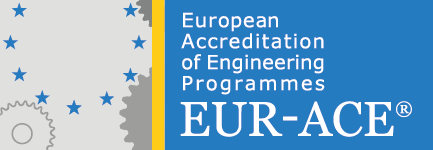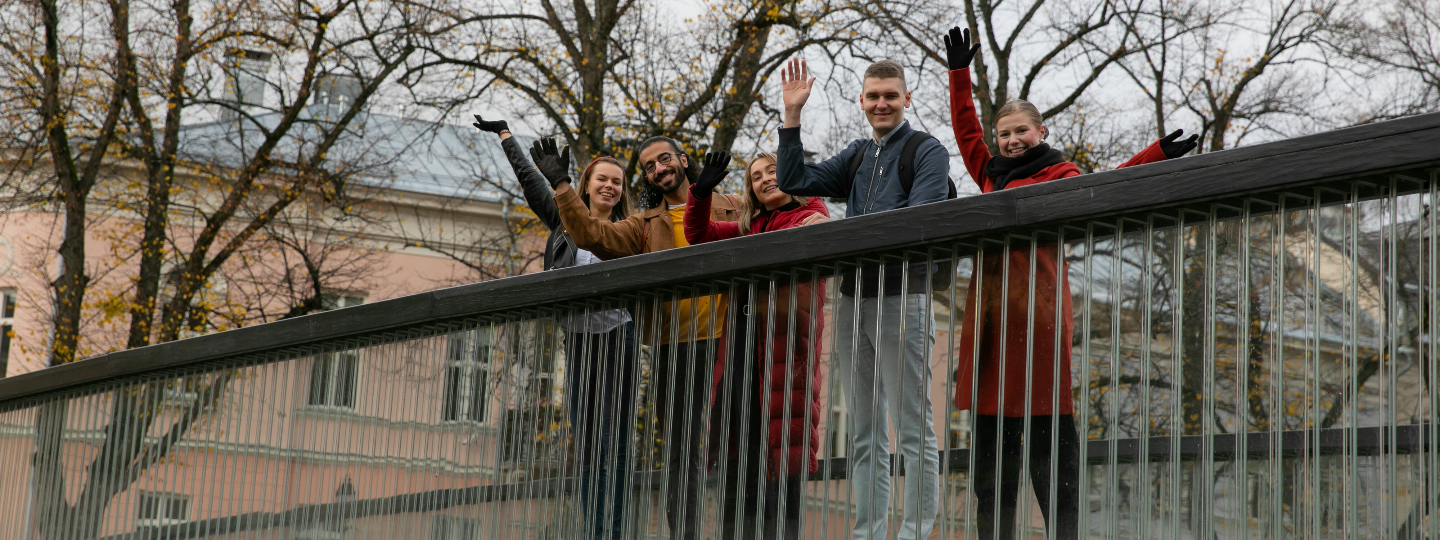Master's Degree Programme in Information and Communication Technology: Software Engineering
The Master’s Degree Programme in Information and Communication Technology provides versatile and high quality ICT education in selected fields of ICT, with an established reputation in innovative, interdisciplinary, and international education.
The Programme has an international double-degree collaboration with the European Institute of Innovation and Technology (EIT) Master School. In the academic year 2023-2024, the Programme offers five specialisation tracks:
- Cyber Security
- Robotics and Autonomous Systems
- Cryptography
- Software Engineering
- Data Analytics
The Software Engineering specialisation track trains experts for designing and implementing demanding software systems. The specialisation track covers the entire life-cycle of software projects. In addition to solid programming skills, the students on the track acquire comprehensive knowledge about
- software design and architectures
- agile methodologies in software development
- software testing, quality assurance, and usability
- advanced programming techniques and paradigms
- privacy and security as a part of software implementations.
The curriculum is a combination of academic software engineering theory and practices used in modern software development. Central in the curriculum is applying theory into practice via hands-on project assignments. The worldwide demand for digital solutions is huge and software engineering graduates are in short supply. Students find many employment opportunities regionally, nationally, and internationally in design, implementation, and management positions in software companies and IT departments of industrial organizations and other institutions.
Entry Requirements
General Requirement
You are an eligible applicant for Master’s degree studies if
- you have a nationally recognized first cycle degree – normally a Bachelor’s degree – from an accredited institution of higher education,
- your degree corresponds to at least 180 ECTS (European credits) or to three years of full-time study,
- your degree is in a relevant field for the Master’s degree programme that you’re applying to. Please check the section on track-specific admission requirements for detailed degree requirements.
Language Requirements
Applicants must have excellent English language skills and a certificate that proves those skills. You can indicate your language skills by taking one of the internationally recognized English language tests.
Applicants must reach the minimum required test results to be considered eligible to the University of Turku. No exceptions will be made. Read more about the language requirements here.
Study right
It is not possible to have more than one Bachelor’s or Master’s study right at the same Faculty. Therefore, when accepting an offered study place, the student will lose any previous BSc. or MSc. study right at the Faculty of Technology at the University of Turku.
Before you start preparing your application, always read the full admission requirements on the application portal Studyinfo.fi
The applicant’s previous degree on the basis of which s/he is seeking admission to the Master’s Degree Programme in Information and Communication Technology must be in a relevant field of study. Relevant fields of previous studies for the Software Engineering specialisation track are:
- Software Engineering
- Computer Science
- Information Systems
- Information Technology
- Other relevant fields of studies provided that sufficient knowledge of programming and the basics of software engineering is achieved.
You may not apply to more than one specialization track within the same Master’s Degree Programme at the University of Turku. Therefore, you should carefully consider that your educational background is suitable enough for the track that you are applying to.
The decision of admission will be based on:
- the relevance of the applicant’s awarded degree(s)
- the amount, relevance, and grades of the courses in the degree(s)
- the language test result (see Language requirements)
- the motivation letter and your answers to the optional questions included in the application
- the possible relevant work experience
- the possible interview.
In addition to the education diploma and language certificate, you should include testimonials of any relevant work experience in your application.
The academic evaluation is made only for complete applications that are received during the application period. Any preliminary assessment of suitability or chances for admission will not be given.
Programme in brief
A. Advanced-level studies in the major subject 50 ECTS
B. Thematic module or minor subject 20-25 ECTS
C. Elective studies 15-20 ECTS
D. Master of Science in Technology thesis 30 ECTS
The Software Engineering specialisation track focuses on software development practices, software system architectures, advanced programming techniques and software security.
The teaching is based on the latest software engineering research and relevant technological frameworks used in the software industry. Students obtain profound theoretical knowledge and pragmatic skills in the field of software engineering and software systems; our instructors have varied backgrounds in both Academia and software industry.
The multidisciplinary university provides students many learning paths to choose from, and the freedom to focus either on acquiring deep technological expertise or a wider multidisciplinary skill set by, e.g., including a substantial number of business courses to the degree.
In the Master's thesis, the student must prove their ability to do scientific work and mastery of research methods, knowledge of the research field, and skills in scientific writing. In writing the Master’s thesis, the student needs to apply their technology skills, abilities and expertise to identify an engineering problem, study its relevance to the field, propose and design a solution, and test and analyse the solution and evaluate its usefulness.
The thesis is often commissioned by a company, which means that an efficient and capable student could be directly employed by the commissioning company, giving a head start to a career in industry. On the other hand, an academically-oriented student might choose a thesis topic related to research conducted by one of our research groups, and apply for the position of doctoral candidate upon completion of an academically distinguished Master’s thesis.
Topics of recently completed Master’s theses include:
- Structuring a Modern Web Service for Users and Search Engines
- A Case Study on Cloud Migration and Improvement of Twelve-Factor App
- Connecting RPA Development and Business : A Tool for Process Definition, Agile RPA Development and Maintenance
- AI-assisted Software Development Effort Estimation
- CUSTOMTOOLS as general integration platform for SOLIDWORKS - ERP data exchange
- Monitoring of a Cloud-Based IT Infrastructure
- Utilising web analytics in the agile development of e-commerce sites : a software developer’s perspective
- Secrets Management in a Multi-Cloud Kubernetes Environment
- Migrating microservices to graph database
- Cloud migration
- Framework change for modernization of webservice
- Implementing web accessibility to an existing web application
Career prospects
The employment rate of those holding an M.Sc.(Tech.) degree is high in Finland. The Master's programme in the Software Engineering specialisation track covers different industrially relevant areas of software engineering. Students benefit from co-operation with companies in the region, especially in terms of visiting lectures, Capstone and Lean Platform Business Design projects, internships, and thesis worker positions. Depending on the students’ choices on elective subjects, successful career paths in IT, traditional industry and public sector as software engineering experts and managers are achievable in the Turku area, as well as other regions in Finland and globally.
The information-intensive industry has become one of the most important business sectors in Finland, and in the information society, information has become one of the most relevant products. In Europe, ICT has a critical role in improving the profitability of the businesses sector and in responding to the needs of the society.
The expertise profile may lead to a career title of, e.g.,
- software engineer,
- software developer,
- lead developer,
- software architect,
- ICT consultant,
- software team lead, or
- software project manager.
In addition to pursuing careers in the IT industry as software engineering specialists, graduates of the Programme are also eligible to apply for PhD studies.
Master's Degree (Technology) provides eligibility for scientific postgraduate degree studies. Postgraduate degrees are doctoral and licentiate degrees. Degrees can be completed within the University of Turku Graduate School.


